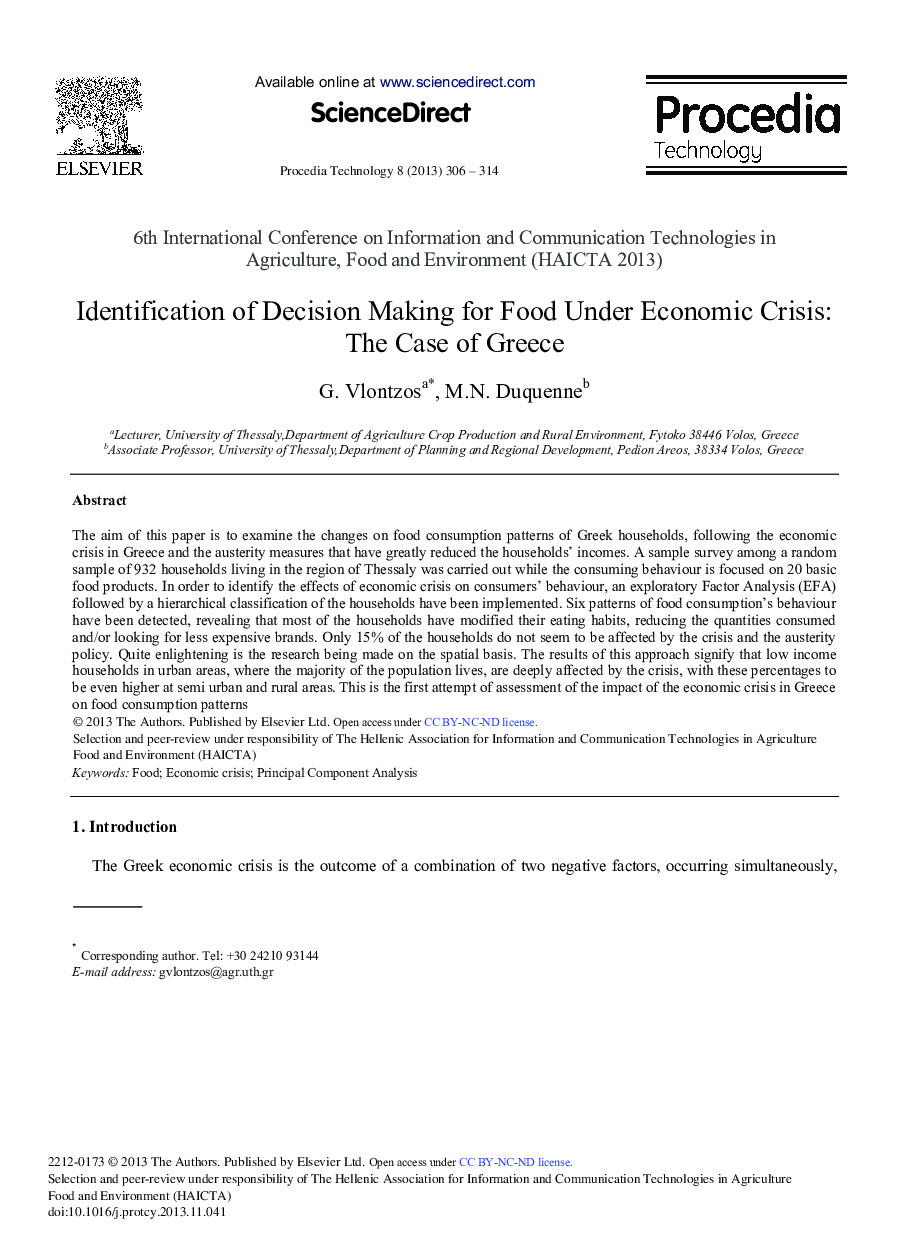| Article ID | Journal | Published Year | Pages | File Type |
|---|---|---|---|---|
| 493111 | Procedia Technology | 2013 | 9 Pages |
The aim of this paper is to examine the changes on food consumption patterns of Greek households, following the economic crisis in Greece and the austerity measures that have greatly reduced the households’ incomes. A sample survey among a random sample of 932 households living in the region of Thessaly was carried out while the consuming behaviour is focused on 20 basic food products. In order to identify the effects of economic crisis on consumers’ behaviour, an exploratory Factor Analysis (EFA) followed by a hierarchical classification of the households have been implemented. Six patterns of food consumption's behaviour have been detected, revealing that most of the households have modified their eating habits, reducing the quantities consumed and/or looking for less expensive brands. Only 15% of the households do not seem to be affected by the crisis and the austerity policy. Quite enlightening is the research being made on the spatial basis. The results of this approach signify that low income households in urban areas, where the majority of the population lives, are deeply affected by the crisis, with these percentages to be even higher at semi urban and rural areas. This is the first attempt of assessment of the impact of the economic crisis in Greece on food consumption patterns
